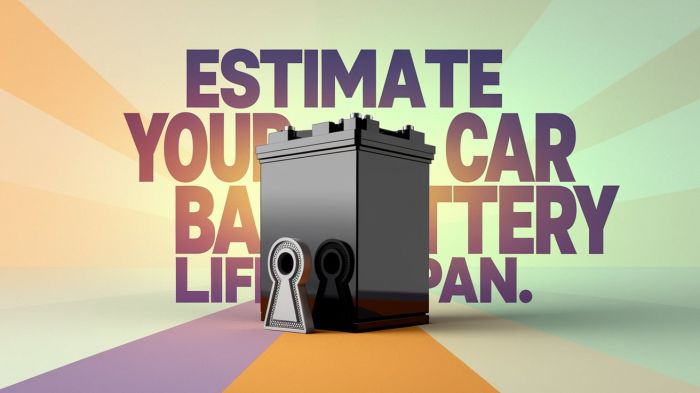Your automatic transmission may go rattling because of poor lubrication, torque converter failure, mount problem, or it may not be a transmission. It's really easy to think that the sound that's coming from the exhaust pipe, engine, or other component of your vehicle is actually coming from the transmission. So, you will need to check this.
Transmission shuddering problem highlights
- Level of importance:Medium
- Reasons:Low fluid, wrong fluid, cold transmission, issues with torque converter
- Needed expertise:High
- Needed tools:Professional tools set
- Time taken:3-7 hours
- Can you drive? Carefully
- Possible issues: Torque converter wear and tear, issues if shuddering gets worse.
Symptoms of the rattling automatic transmission
Before we start, I want to make sure that we are thinking about the same problem now. I am going to talk about the issue when your automatic transmission is rattling when in any possible mode or in certain modes like in Park, for example. Also, the rattling may be just heard or even felt in the interior of your vehicle as a slight vibration.
It doesn't affect the performance of the vehicle, and it seems to not change the way you drive. But still, when you feel that your transmission is rattling, you may start panicking. This is one of the most expensive units in your vehicle and it's quite natural to start searching for a solution or at least for a way to diagnose the problem correctly.
What are the common reasons for the transmission rattling?
Automatic transmissions usually work pretty smoothly and don't get on your nerves with different sounds and vibrations. If they do, you need to inspect them and find the problem. When it comes to automatic transmission rattling, you should check the most common reasons that can cause this problem. Of course, you may need professional help because a modern transmission is a really complicated unit that needs experienced mechanics to be repaired or even diagnosed.
Here are the most common reasons for automatic transmission rattling:
1. Low fluid level in the transmission
Your transmission has fluid inside it. The fluid is important not only for lubricating the parts of the transmission, but also serves as one of the important factors for the good work of the torque converter and other parts of the unit. If the fluid is low, the transmission just won't work properly.
Also, the rattling sound may appear because of overheating and bad lubrication. It will mean that your transmission is going to fail soon if you don't stop the vehicle. In this case, your transmission will be rattling at all times, not only in Park but in all modes.
Also, there can be different error messages and codes in the ECU if your transmission is equipped with fluid level sensors, temperature sensors, etc. But in some transmissions, there are no special sensors and you will have to deduct that the fluid level is low.
You can top up fluid after you check the level. If this doesn't help, you may also try to change the fluid and the filter. Sometimes, this saves the transmission.
2. Gear problems
One possible issue is that one of the gears in your automatic transmission is broken or damaged. This will cause transmission rattling in certain gears. Also, if the main gear is affected, you may feel rattling whenever the transmission is in any gear. But when in Neutral or Park, the rattling shouldn't be so noticeable.
Unfortunately, there is only one way to solve the problem - to repair the transmission. It means you will need to find a mechanic who has experience with your type of automatic transmission. DIY repairs are not a good idea.
3. Transmission or engine mounts
Tranny rattling may be the result of one simple yet very common problem - failure of one of the mounts. Your engine and transmission are holding on several mounts under the hood of the car. At least two mounts are holding the area where the transmission is located.
Those mounts are made of metal and rubber and after some time, they may just fail. It means that the rubber elements will be torn apart and won't do their job. So, the transmission will be hanging on metal parts that directly touch the body. When your transmission works, it vibrates a little and in normal conditions, the mounts will compensate for these vibrations.
But when one of the mounts is faulty, there is no way it can help the vehicle hide the natural vibrations and rattling of the engine. So, you start feeling it exactly in your interior.
4. CVT or DCT units problems
If you have a CVT or dual-clutch transmission in your vehicle, they can rattle when they are going to die.
The CVT usually lives up to 120,000 miles. When it comes close to this milestone, it may start rattling because it overheats and some of its parts are not working properly. After some time, the transmission will fail and you will need to repair or even replace it.
When the DCT unit starts vibrating or rattling, you may be sure that one of the two parts is going to fail soon: the clutch or the TCM (transmission control module). These are two weak factors of almost any DCT transmission, so just focus on them to find the reason for rattling.
5. Solenoids are clogged
In a traditional automatic transmission, there can be one more issue - some solenoids may get clogged. The traditional transmission consists of gears, a torque converter, and a solenoid block. The solenoid block sends the fluid to different sections of the transmission when needed. Once something goes wrong with the solenoids, the transmission may malfunction in all different ways.
Broken or clogged solenoids are very common issues of transmission rattling. So, check them if you are taking the transmission apart and looking for the reason for rattling.
6. Torque converter problems
Another issue you should check is the problem with the torque converter. This is one of the serious issues that sometimes may lead to the entire transmission failure. Unfortunately, there are no certain signs of torque converter failure - it may fail with different possible signs and consequences.
But rattling of the transmission often means that the torque converter is not doing its job correctly. It may happen because of the low fluid level, but sometimes the torque converter itself is in charge.
7. Inner or outer joints
Your transmission transfers the power and torque to the wheels through axles. These axles are connected to the transmission with the help of inner joints. The outer joints connect axles to the wheels. When these joints malfunction, your transmission may feel like rattling on the go. Though it will be OK when the car is not moving.
Is it actually about the transmission?
If you just feel or hear rattling from the area of your transmission, you should also check other possible problems. For example, the exhaust pipe may touch some body part or other unit and create rattling noise. Or one of the engine mounts is dead and the engine vibrates heavily but you think it's all about the transmission.
I've also seen cases when problems with the steering system or suspension caused a kind of rattling that came from the area of transmission.
So, you will need a really good and professional inspection before you agree to pay for the transmission repair. Very often, transmission rattle appears to be the rattle of something else. And this is an important thing to remember.
Can you still drive with the rattling transmission?
I don't recommend driving for a long time with the rattling automatic transmission. If you still need to drive and don't have any other choice, try shifting to the manual mode if your transmission offers one. This will help you save at least some parts of the transmission from being damaged.
The consequences of driving with a rattling transmission may be quite bad - they include heavy transmission damage, overheating, and bad damage to other parts and units of your car that are involved in the problem. Of course, if you keep driving, the repair may eventually cost you much more than if you stop and figure out what exactly is causing the issue.
How can you solve this problem?
Unfortunately, automatic transmissions are very complicated and I don't see any way for DIY repairs. You may try checking the fluid level if the transmission in your vehicle has the dipstick. But if it doesn't even this process will be pretty tough.
The best way to solve the problem of the rattling sounds in the transmission is to find a good mechanic who will locate the problem and repair it. If your vehicle is still under warranty, you should go to the dealership rather than to the repair shop near you.
Anyway, repairing the transmission is never cheap, so you need to have some money for this. If the transmission has a lot of miles on it and has multiple problems, a good mechanic will offer you to search for a replacement transmission.
About the authors
The CarAraC research team is composed of seasoned auto mechanics and automotive industry professionals, including individuals with advanced degrees and certifications in their field. Our team members boast prestigious credentials, reflecting their extensive knowledge and skills. These qualifications include: IMI: Institute of the Motor Industry, ASE-Certified Master Automobile Technicians; Coventry University, Graduate of MA in Automotive Journalism; Politecnico di Torino, Italy, MS Automotive Engineering; Ss. Cyril and Methodius University in Skopje, Mechanical University in Skopje; TOC Automotive College; DHA Suffa University, Department of Mechanical Engineering






Add comment